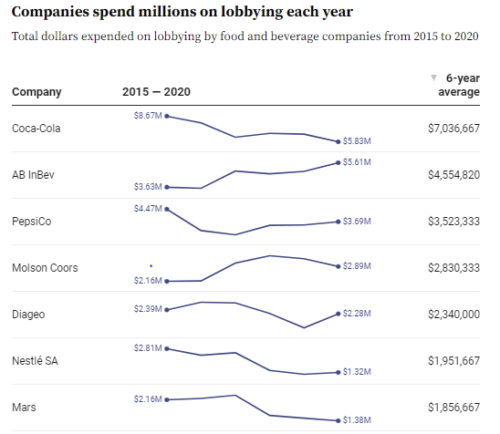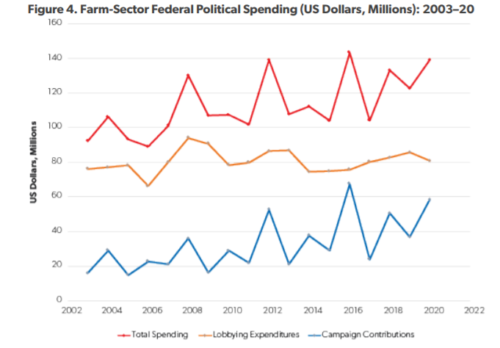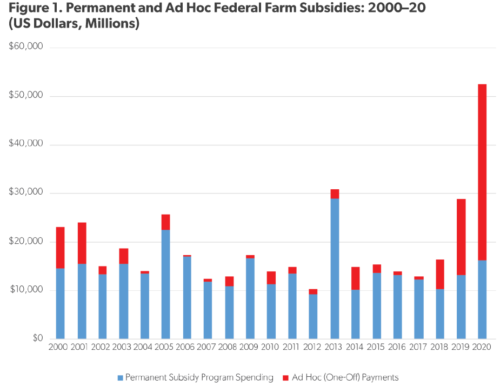Let’s talk about food industry lobbying
Lobbying is legal; it is simply requests of legislators by interest groups for action in their own interests. Everyone can do this, but corporations that donate to election campaigns have greater access to legislators and also deeper pockets to pay people to do this work. And lobbyists are often former employees of government regulator agencies who now work for corporations—the “revolving door.” The biggest problem for food advocacy groups: finding the funds to pay people to lobby for their issues.
Recent reports on lobbying and lobbyists:
I. Food Research Collaboration: Examination of power, access, and influence of participants at the recent COP26 climate change negotiations in Glasgow. Conclusions:
- The Brazilian delegation had the highest number of food industry representatives, including beef producers.
- Food industry members attended as part of groups officially considered Non-Governmental Organisations.
- Representatives of many food corporations and trade groups attended.
II. Dive Wire: Where the dollars go: Lobbying a big business for large food and beverage CPGs. Coca-Cola, PepsiCo, AB InBev and 27 other companies spend close to $40 million a year on issues including trade and taxes in an effort to make their voices heard by lawmakers and regulators.

III. American Enterprise Institute: Political Influence Efforts in the U.S. Through Campaign Contributions and Lobbying Expenditures: An Index Approach

IV. American Enterprise Institute. Farm-Sector Spending on Federal Campaign Contributions snd Lobbying Expenditures: Evidence from 2003 to 2020.
Here’s why the farm sector lobbies:

The system is rigged: no group advocating for small and medium farms, “horticulture vs. commodities, conservation, sustainability, or regenerative agriculture can possibly compete with Big Food or Big Ag.

